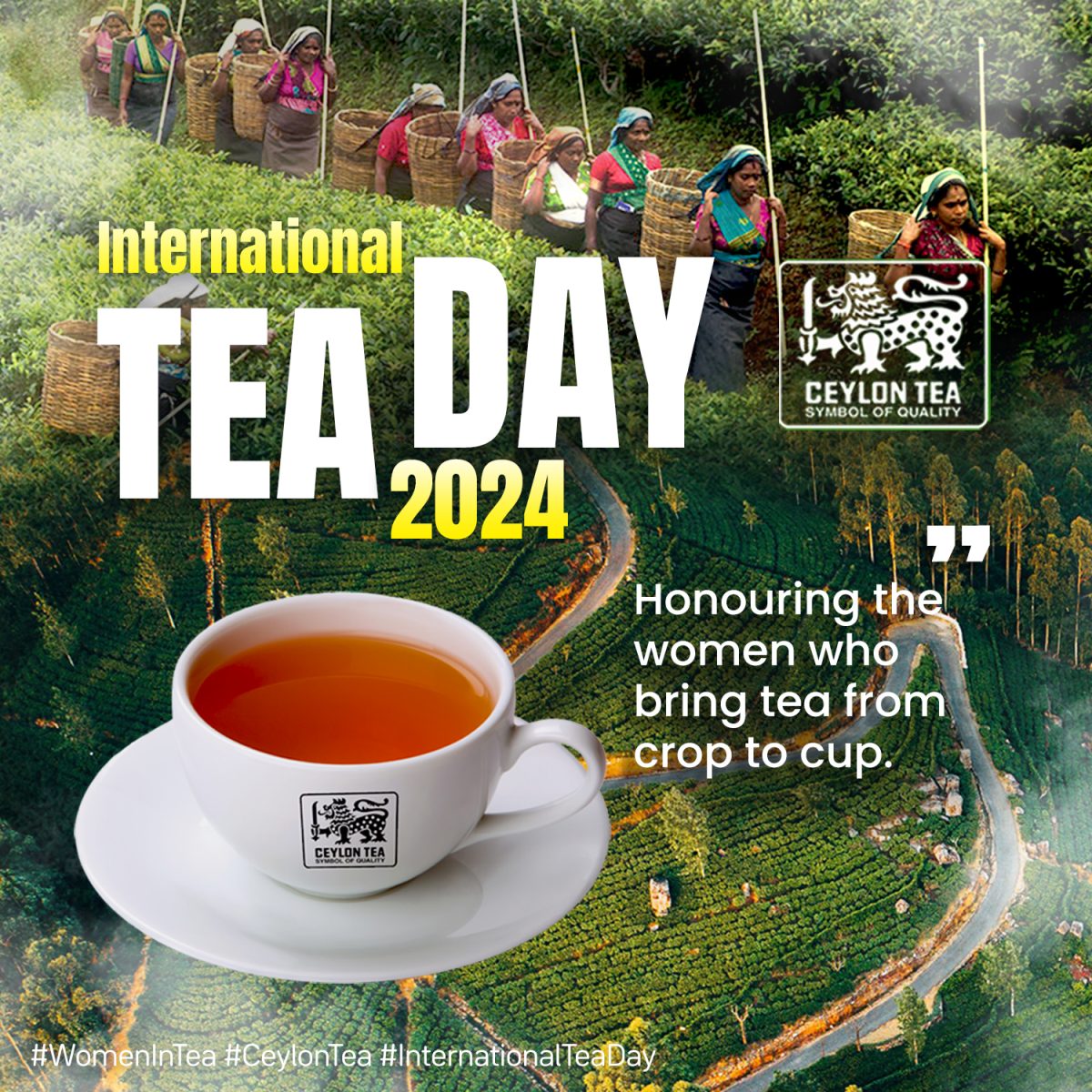
COLOMBO ; Tea holds a significant place in our world as the most consumed beverage after water. International Tea Day, observed annually on May 21st, was established by the United Nations through a resolution adopted on December 21, 2019. This day serves to highlight the rich history and profound cultural and economic impact of tea globally. The aim is to encourage collective efforts towards sustainable tea production and consumption while raising awareness of its role in combating hunger and poverty. Additionally, it emphasises the importance of tea in rural development and sustainable livelihoods, aligning with the 2030 Agenda for Sustainable Development.
The main objective of International Tea Day is to educate the public about the vital role of tea in fostering sustainable livelihoods and rural development, as well as the challenges faced by the tea industry, notably climate change. By promoting tea consumption worldwide, the day seeks to stimulate demand and increase per capita consumption.
Furthermore, International Tea Day serves as an opportunity to spotlight the health benefits of tea consumption. Rich in antioxidants, tea has been associated with a reduced risk of heart disease and certain cancers. It can also aid in weight loss and contribute to overall well-being, serving as an accessible and cost-effective tool in combating major health issues such as obesity, nausea and sluggish metabolism.
Sri Lankan tea, renowned globally, has a rich history dating back to the era of British rule over two centuries ago. The origins of Ceylon tea trace back to 1824, when the British introduced a tea plant from China and cultivated it in the Royal Botanical Gardens in Peradeniya for experimental purposes. However, it was James Taylor who pioneered commercial tea cultivation in Sri Lanka. Arriving in Ceylon in 1852 to work on coffee plantations, Taylor became instrumental in transitioning to tea cultivation after a leaf disease devastated the island’s coffee industry in 1869. Regarded as the “Father of Ceylon’s Tea Industry,” Taylor embarked on this historic journey by planting the first tea clearing in 1867, located on what is now Field No. 7 of Loolecondera Estate near Kandy.
(The writer Marshad Barry, MBA (University of West England), Diploma in Journalism (University of Colombo), Vice President of Sri Lanka Malaysia Business Council)
Post Disclaimer | Support Us
Support Us
The sailanmuslim.com web site entirely supported by individual donors and well wishers. If you regularly visit this site and wish to show your appreciation, or if you wish to see further development of sailanmuslim.com, please donate us
IMPORTANT : All content hosted on sailanmuslim.com is solely for non-commercial purposes and with the permission of original copyright holders. Any other use of the hosted content, such as for financial gain, requires express approval from the copyright owners.
 Sri lanka Muslims Web Portal Sri Lanka Muslims News Center
Sri lanka Muslims Web Portal Sri Lanka Muslims News Center
 Donate
Donate


